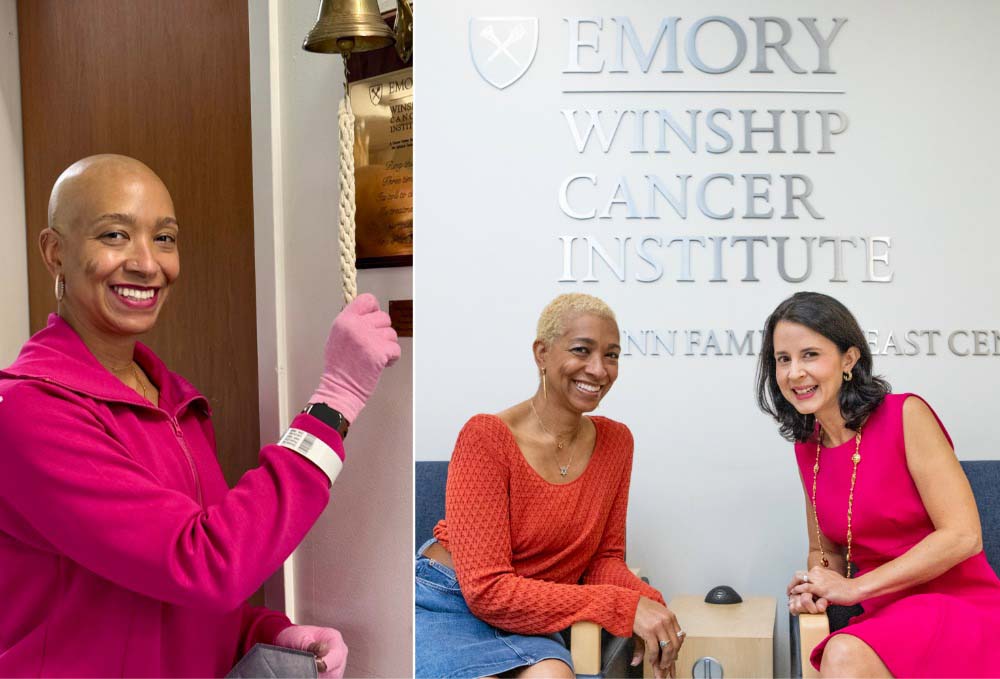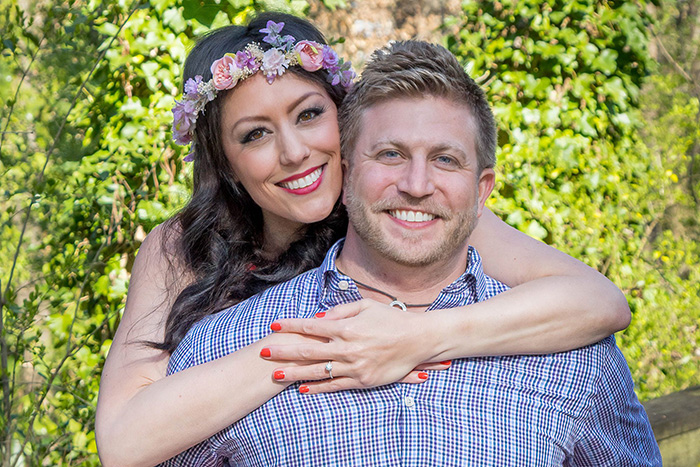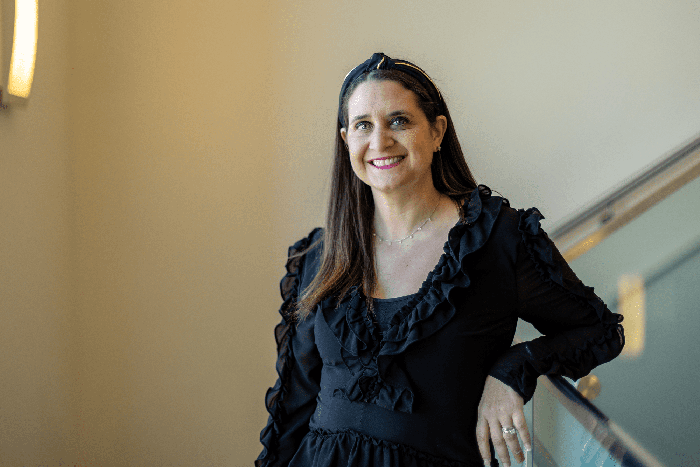Connecting with Winship
A friend who worked with a childhood cancer group referred Joanne to Grant Carlson, MD, FACS, a surgeon and researcher at Winship Cancer Institute of Emory University. Dr. Carlson is chief of the Division of Plastic Surgery at Emory University School of Medicine and one of the few surgeons trained in both plastic surgery and surgical oncology. He is the only surgeon in the Atlanta area to perform both the breast surgery to remove the tumor as well as immediate reconstruction, which begins at the same time as the tumor removal.
 “The first thing Dr. Carlson said to me was, ‘I promise you that you won’t be dying of breast cancer this year under my care. From everything I see so far, I can assure you that you will die someday, but it won’t be from breast cancer,’” says Joanne.
“The first thing Dr. Carlson said to me was, ‘I promise you that you won’t be dying of breast cancer this year under my care. From everything I see so far, I can assure you that you will die someday, but it won’t be from breast cancer,’” says Joanne.
An MRI revealed two more spots on her left side and a second spot on the right. A further battery of tests indicated that Joanne was a candidate for a nipple-sparing mastectomy, a procedure that Dr. Carlson developed. “This amazing type of mastectomy,” Joanne explains, “allows women that are candidates to be able to maintain the dignity of having their own breasts, which I know is so rare in this particular type of cancer.”
At Winship, Joanne had a double nipple-sparing mastectomy. But after tests showed she had two spots with a high likelihood of cancer recurrence, she had a double total mastectomy and implants, followed by fat-grafting to “make things a little more aesthetically pleasing,” she says.
Joanne was anticipating her fifth “and hopefully last” surgery at the time of our interview.
Telling Her Story
Joanne speaks highly of the people who have been central to successfully navigating her cancer experience. She praises her surgeon for the expert, compassionate care he offered. “Dr. Carlson has become like family and very much a part of my life and my husband’s life,” she says. “He’s laughed with us and cried with us and made the experience a very positive one. The words he spoke on our first visit shaped the way I looked at the entire cancer journey.”
Joanne’s support system consisted of friends and a husband who was “such a big part of it.” She adds that telling her own story has also been part of her healing, too. “A lot of outpouring came from telling that story in our own publication,” says Joanne, who is the publisher of Simply Buckhead magazine. After sharing her story, she was inundated with text messages, emails and phone calls from people thanking her for telling her story, and women who came forward to say they’d never had a mammogram.
One message particularly struck Joanne. “Last week, a woman in her sixties told me that she had just gone for her first mammogram ever,” she says. “I know many women are afraid of it, but knowledge is power. If you know something early enough, you can treat it.”
Joanne’s board-certified medical oncologist, Jane Lowe Meisel, MD, a researcher and physician at Winship Cancer Institute and associate professor in the Department of Hematology and Medical Oncology at Emory University School of Medicine, explains why screenings are so vital. “Studies show that breast cancers detected by screening mammography have higher cure rates than those diagnosed when a mass is large enough to be felt on self-exam, and it is true that not only are these screen-detected cancers often more curable, but they are often more curable with less aggressive courses of treatment than might be required if the cancer were to be diagnosed at a later stage.”
Dr. Meisel adds, “I always encourage women to get their screening mammograms for exactly this reason. If the mammogram is normal, that is empowering in its own wonderful way. But if a cancer is diagnosed this way, there is also power in finding a cancer early and then being able to have all the potential tools at your disposal to cure it.”
Women at average risk for breast cancer should begin breast cancer screening with annual mammography at age 40, and earlier if at high risk. Emory’s breast imaging services provides highly skilled board-certified radiologists experienced in mammography and breast imaging procedures. Call 404-778-7465 to make an appointment at one of our Breast Imaging Center locations. It’s recommended that you schedule your screening mammography well before it’s due.


 “The first thing Dr. Carlson said to me was, ‘I promise you that you won’t be dying of breast cancer this year under my care. From everything I see so far, I can assure you that you will die someday, but it won’t be from breast cancer,’” says Joanne.
“The first thing Dr. Carlson said to me was, ‘I promise you that you won’t be dying of breast cancer this year under my care. From everything I see so far, I can assure you that you will die someday, but it won’t be from breast cancer,’” says Joanne.

